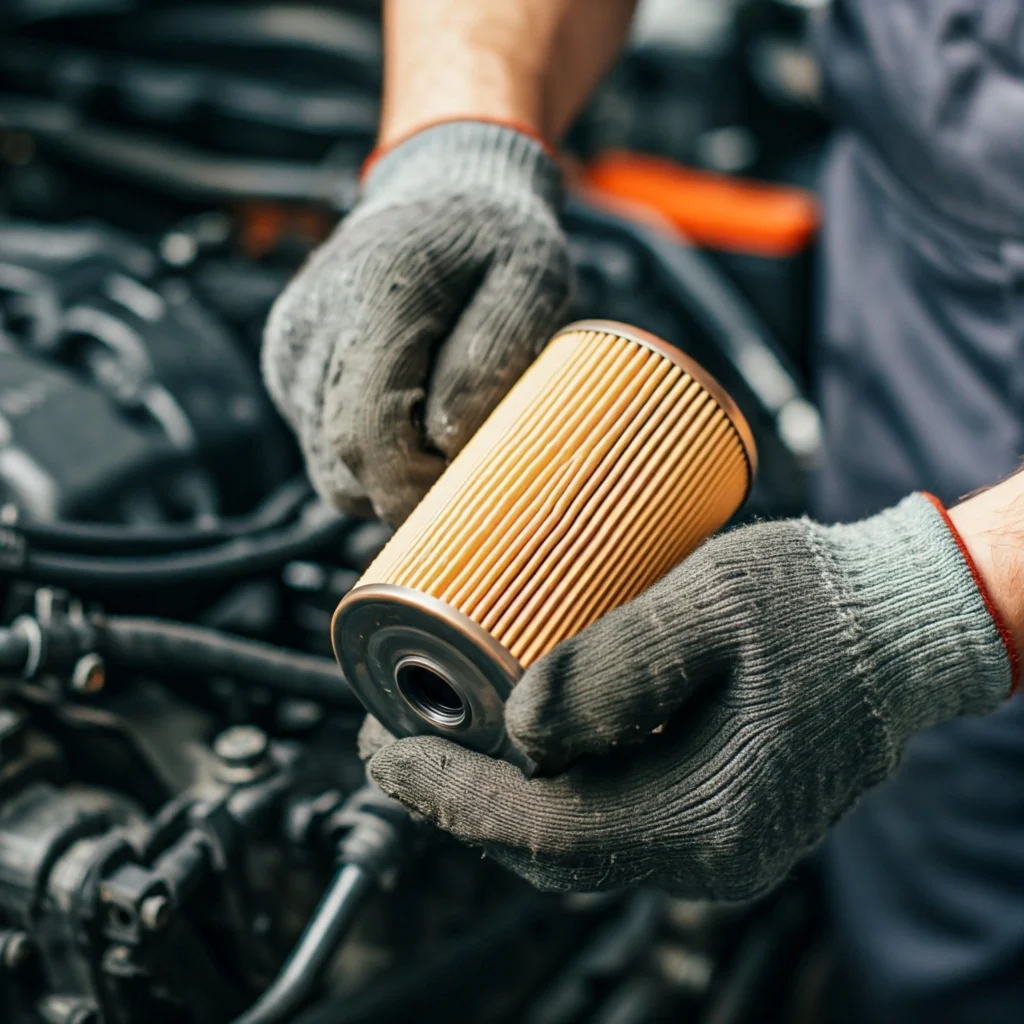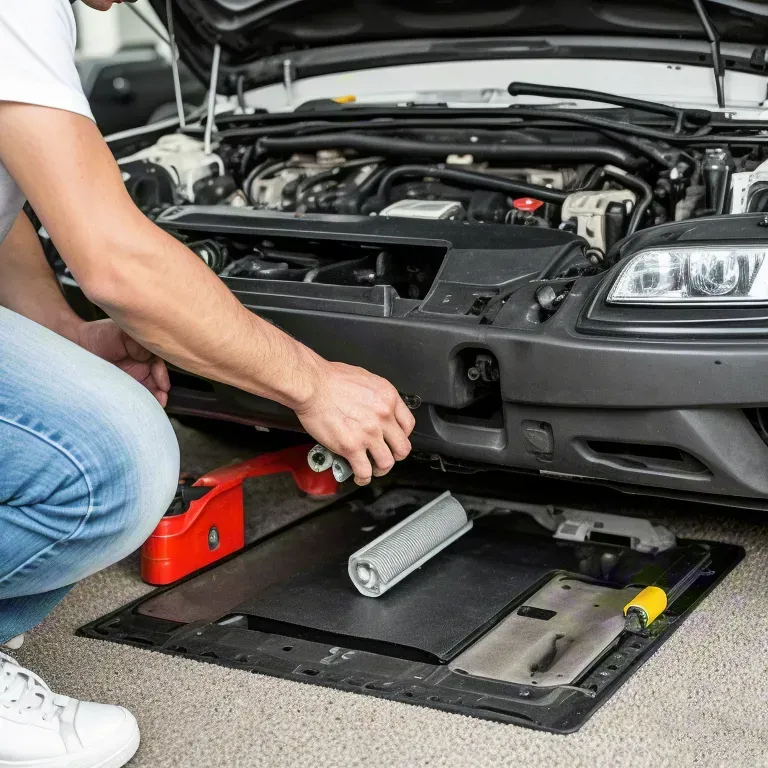
1.The Importance of Air Filters
Air filters, akin to the lungs in the human body, serve as the “respiratory organs” of a car engine. Their primary function is to filter the air, preventing dust, particles, and other impurities from entering the engine, ensuring that clean air is what reaches the engine’s internals.- Protection of the Engine:
- Reduced Wear: If impurities in the air enter the engine, they can accelerate the wear of internal parts, shortening the engine’s lifespan.
- Prevention of Carbon Deposits: Impurities can adhere to the engine’s interior, forming carbon deposits that affect engine performance.
- Ensuring Engine Performance:
- Complete Combustion: Clean air ensures the accuracy of the engine’s air-fuel mixture, allowing for complete combustion and increased engine power output.
- Reduced Fuel Consumption: Complete combustion can lead to lower fuel consumption, saving on fuel costs.
- Extending Engine Life:
- Reduced Malfunctions: Clean air can decrease the frequency of engine malfunctions, thereby extending the engine’s service life.
2.Common Misconceptions and Reasons for Air Filter Replacement
- Changing Based on Mileage:
- Impact of Driving Environment: Dust concentration varies greatly in different environments such as cities, rural areas, and construction sites, affecting how quickly the air filter becomes dirty.
- Driving Habits: Frequent short trips and rapid acceleration can accelerate the wear of the air filter.
- Not Changing Until Blocked:
- Filter Aging: Even if the filter appears clean on the surface, the internal filtering material may have aged, reducing its effectiveness.
- Increased Resistance: A clogged filter increases the engine’s intake resistance, affecting performance.
- Expensive Filters Are Always Better:
- Compatibility with Vehicle Model: Choosing a filter that matches the vehicle model is key; overpaying does not necessarily yield better results.
3.Factors Affecting Air Filter Replacement Frequency
Driving Environment:
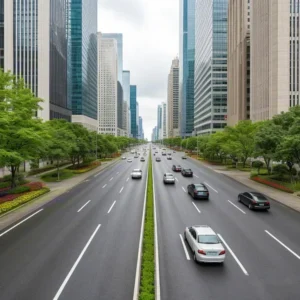
Urban Roads
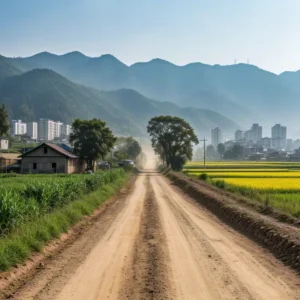
Rural Roads
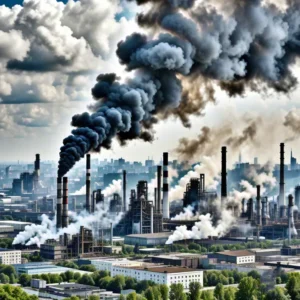
Industrial Areas
Vehicle Usage Frequency:
- High-Frequency Use: Higher replacement frequency.
- Low-Frequency Use: Lower replacement frequency.
Air Filter Material:
- Paper Filters: Require more frequent replacements.
- Sponge Filters: Can be cleaned and reused, but their replacement cycle should also be determined based on usage.
4.Signs Indicating Air Filter Replacement is Needed
- Unstable Engine Idle: A clogged air filter affects the engine’s air intake, leading to an unstable idle.
- Weak Acceleration: A clogged air filter restricts the engine’s air intake, resulting in weak acceleration.
- Increased Fuel Consumption: A clogged air filter can cause the engine to have a rich air-fuel mixture, increasing fuel consumption.
- Louder Engine Noise: A clogged air filter allows more impurities into the engine, increasing wear and leading to louder noise.
- Inspecting the Air Filter: Regularly visually inspect the air filter; if the filter is blackened,There is obvious dirt or damaged, it needs to be replaced.
5.Air Filter Replacement Recommendations
- General Suggestions:
- Urban Vehicles: Replace every 10,000 kilometers or every 6 months.
- Rural or Construction Site Vehicles: Replace every 5,000 kilometers or every 3 months.
- Special Circumstances:
- Driving in Severe Environments: Shorten the replacement cycle.
- New Vehicles:The first replacement cycle can be appropriately extended.
Precautions:
- Check for Air Leaks After Replacement: Ensure there are no leaks after the replacement.
- Regularly Inspect the Engine Compartment for Abnormalities: Keep an eye out for any unusual signs in the engine compartment.
6.Frequently Asked Questions about Air Filters
How often should I change my air filter?
The frequency of air filter replacement varies depending on driving conditions, vehicle usage, and filter material. Generally, for vehicles driven in urban areas, it’s recommended to change the filter every 6,000 to 10,000 miles or every 6 months. For vehicles driven in dusty rural areas or construction sites, more frequent replacements are necessary, such as every 3,000 to 5,000 miles or every 3 months.What are the effects of a clogged air filter?
A clogged air filter can restrict the amount of air entering the engine, leading to the following problems:- Engine idling instability: Insufficient air intake can cause the engine to idle unevenly.
- Decreased acceleration: The engine cannot obtain enough air during acceleration, resulting in sluggish performance.
- Increased fuel consumption: A clogged air filter can cause a rich air-fuel mixture, increasing fuel consumption.
- Increased engine noise: Debris entering the engine can increase engine wear and cause increased noise.
How can I tell if my air filter needs to be replaced?
Besides the above symptoms, you can also visually inspect the air filter:- Blackened filter: Indicates that the filter has trapped a lot of dust.
- Visible dirt: There is visible dirt or oil on the filter surface.
- Damaged filter: The filter is damaged and its filtering efficiency is significantly reduced.
Can I replace the air filter myself?
Generally, replacing an air filter is a relatively simple task that many car owners can do themselves. However, the location and replacement procedure may vary depending on the vehicle model. It’s advisable to consult the vehicle’s owner’s manual or watch a tutorial video before attempting the replacement.What are the different types of air filter materials? Which one is better?
Common air filter materials include paper and foam.- Paper filters: Offer good filtration efficiency and are relatively inexpensive, but have a shorter lifespan.
- Foam filters: More durable and can be cleaned and reused, but may not have the same filtration efficiency as paper filters.
- The choice of filter material depends on the vehicle model and personal preference.
What is the role of the air filter in an engine?
The air filter is the “lung” of the engine. Its primary function is to filter the air, blocking dust, particles, and other contaminants to ensure that only clean air enters the engine. Clean air ensures accurate air-fuel mixture ratios, allowing for complete combustion, improving engine power output, reducing fuel consumption, and extending engine life.What should I pay attention to when replacing an air filter?
When replacing an air filter, pay attention to the following:- Choose the right filter: Select a filter that matches the original equipment manufacturer’s specifications or is of reliable quality.
- Maintain cleanliness: Keep the engine compartment clean to prevent debris from entering the engine during the replacement process.
- Check for leaks: After replacement, check for any air leaks around the filter.
How does the air filter affect the environment?
Regularly replacing the air filter can reduce vehicle emissions, thereby improving air quality and protecting the environment.
How can we help you?
Contact us at the Consulting WP office nearest to you or submit a business inquiry online.






